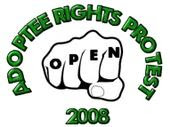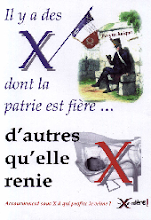
ST, CLOUD TIMES,
December 18, 2007
Most adoptees welcome reunion
By Natalie Miller Rotunda
One of the most controversial aspects of adoption — access to birth records — was the subject of a recent news story. “Should adoptees see records?” It focused on a report released last month by the Evan B. Donaldson Adoption Institute. They say yes, and have ample support for their stand.
At present, only eight states allow that type of access, and the institute would like to see every state make birth records available to adult adoptees who want to know who their birth parents are.
For those adults in the eight states who found birth parents, the Institute reports, “Outcomes appear to have been overwhelmingly positive for adult adopted persons and birth parents alike.”
Most birth parents actually welcome rather than fear contact with the children they gave up. My daughter Robin not only will welcome the day she sees her daughter in the flesh again; she yearns for it. By then, maybe Illinois will be another in a long list of states to accommodate records access.
More than 50 years ago, adoptions were closed. Birth parents and adoptive parents had little or no contact or information exchange, and adult adoptees consequently had no connection to their past. By the 1970s, a few alternatives became available. Total secrecy is rare now, and, thankfully, a growing number of professionals regard it as a poor practice for everyone involved.
Heart of the issue
Peel away the layers of closed versus open adoptions and the birth records controversies and what’s left? The heart of the issue — what’s best for those directly involved?
The institute uncovered information that helps us understand the benefits of openness in adoptions. It concluded that the best of all possible adoptive situations is an open one, where the birth mother meets, or at least helps choose, her baby’s new parents.
Mothers who place their children and have a hand in knowing where the child is have fewer grief issues. “Research on birth mothers who relinquished children for adoption in the era of total secrecy chronicles a negative, long-term impact of this experience on many areas of their lives, including triggering chronic, severe grief reactions and contributing to ongoing complications in future parenting and marriage relationships.”
Not knowing what happened to their children was the hardest reality with which they coped.
Living with adoption
When Robin made the gut-wrenching decision to give her baby up, she didn’t know much about the process. She did know she wanted some control over who would rear the baby. The caseworker at the Catholic adoption agency in Quincy emphasized repeatedly that, once she signed the papers, she would forever relinquish parental rights. Forewarned, she continued meeting with her caseworker in the months before the baby’s birth.
They called it a closed adoption. Yet, Robin looked through stacks of profiles of couples who desperately wanted to adopt a child, couples with no names, just stories describing their lives and why they wanted a baby.
The couple she chose must have seen their hopes crumble when they learned that Robin brought the baby home. But she hadn’t changed her mind. She wanted a week, just one week, before she gave her baby to the loving couple who would give her child the home she wasn’t able to give her at the time. For one week, she was the baby’s mom, and she crammed a lifetime of memories into each day.
Then came the cold January day when the caseworkers picked up the baby. We’d all written loving messages telling her we loved her, and tucked meaningful mementos into envelopes we hoped the new parents would someday give the baby.
Robin signed the papers that ended her parental rights. Would we meet again someday? We all hoped so.
Our family has lived with the realities of adoption. By the time Robin’s baby is an adult, the Evan B. Donaldson Adoption Institute may have achieved its goal — that all states will have legislated an open-door policy for adult adoptees who want to know their family roots.
This is the opinion of Natalie Miller Rotunda, president and co-founder of the Quincy, Ill., Writers Guild. She moved to Minnesota in 1995. Her column is published the third Tuesday of the month.
Link to article














